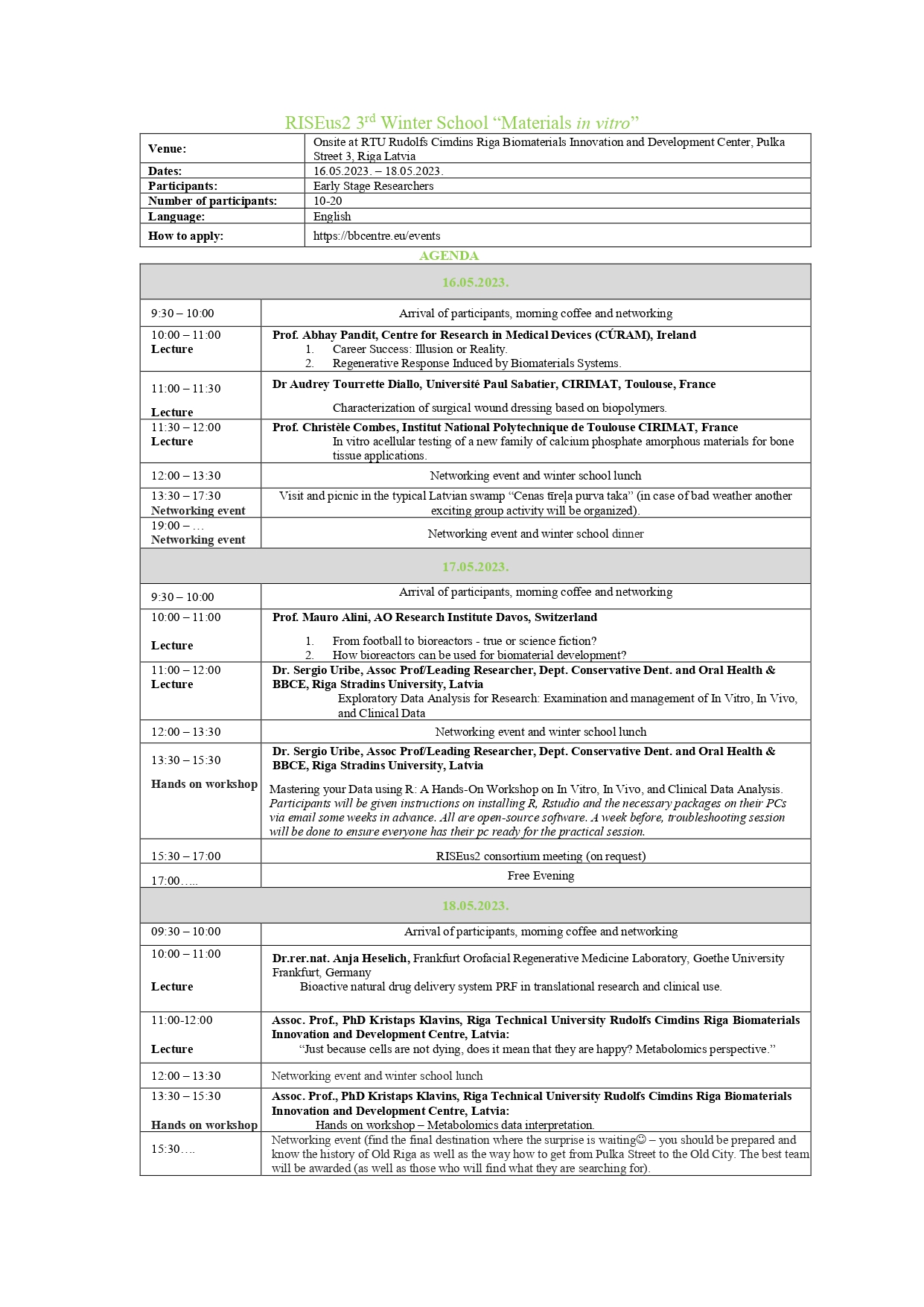RISEus2 3rd Winter School in collaboration with PREMUROSA consortium
Event date: 16-05-2023
3rd Winter School "Materials in vitro"
Onsite event from 16.05.2023. - 18.05.2023. at Pulka street 3, Riga, Latvia, LV-1073 has been foreseen.
Lectures and hands on exercises will be provided by PREMUROSA and RISEus2 advanced partners: Centre for Research in Medical Devices (CURAM), Ireland; Unversite Paul Sabatier, CIRIMAT, Touluse, France; Institut National Polytechnique de Toulouse CIRIMAT, France; AO Research Institute Davos, Switzerland; Frankfurt Orofacial Regenerative Medicine Laboratory, Goethe University Frankfurt, Germany.

Acknowledgements: Those projects has received fundings from the EU’s Horizon 2020 research and innovation program under grant agreements No. 860462 and No. 952347.
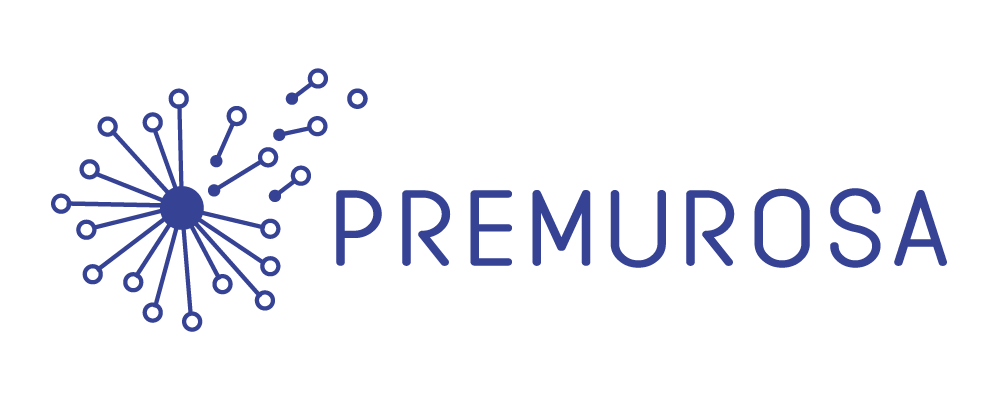

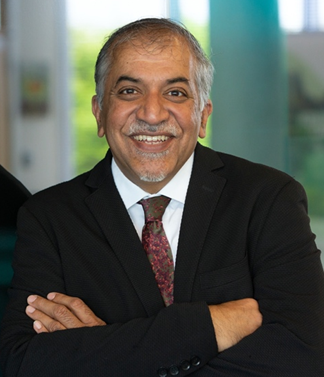 Prof. Abhay Pandit
Prof. Abhay Pandit
An Established Professor in Biomaterials and Scientific Director of CÚRAM, the Science Foundation Ireland (SFI), Centre for Research in Medical Devices based at the University of Galway, Ireland. Prof Pandit has over thirty-two years of experience in medical device translation. After a seven-year stint in industry, he has worked in academia for the last twenty-five years. Prof Pandit has built a critical mass of medical device expertise in Ireland by establishing CÚRAM (Phase I and II) at the University of Galway. CÚRAM brings together more than 600 researchers with synergistic expertise in biomaterials, biomechanics, regenerative medicine, glycobiology, drug delivery, medical implant design, and industry partners. Prof. Pandit's research has developed next-generation reservoir delivery vehicles with high payload capacity, programmable degradation profiles and inbuilt gradients of physical, chemotropic, and protective cues, which facilitate spatiotemporal localised sustained delivery of multiple biomolecules to target injury mechanisms at the molecular and cellular levels, with thrust on glycobiology. Prof. Pandit’s research integrates material science and biological paradigms in developing solutions for chronic diseases. Prof Pandit's research program utilises foundation platform technologies to drive disruptive change through a synergistic network of national and international academic, clinical, and industrial collaborations. He has generated research contracts from industry and government funding agencies, more than € 175 million. He is the author of 28 patents, with 14 other patent applications pending. He has licensed three technologies to medical device companies. He has published more than 335 manuscripts in high-impact factor publications, including Science Advances, Nature Communication, Science Translational Medicine, PNAS, Advanced Materials, Journal of American Chemical Society, Advanced Functional Materials, Biomaterials, Molecular Therapy, and has authored more than 715 papers at both national and international conferences. Prof Pandit is on the Executive Editorial Board of the Tissue Engineering journal and Senior Associate Editor of the Biomaterials journal. He currently Chairs the EU Chapter of the Tissue Engineering and Regenerative Medicine Society. He is a Fellow of the Tissue Engineering and Regenerative International Society, an International Fellow in Biomaterials Science and Engineering, and the American Institute of Medical and Biological Engineers College of Fellows. He has recently been awarded the prestigious George Winter Award 2022 from the European Society for Biomaterials for ‘outstanding research contributions to the field of biomaterials.
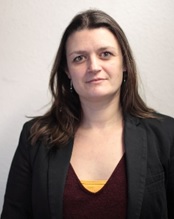 Dr. Audrey Tourrette Diallo
Dr. Audrey Tourrette Diallo
Audrey Tourrette is a Assistant Professor in Pharmaceutical formulation and Medical Devices in the Department of Pharmacy of the University of Toulouse III - Paul-Sabatier since 2009. She received her PhD in 2006 for her study on the design and characterization of composite chitosan/silica microspheres for drug delivery. She then held a position as a Contractual Assistant-Professor at the « Ecole Pratique des Hautes Etudes » in Paris, where she studied collagen-based biomaterials for the growth of neuronal cells. From 2007 to 2009, she held a postdoctoral position at the University of Twente (Netherlands) dedicated to the surface modification of cellulose fibers with stimuli-responsive microgels for the design of smart textiles. Currently, her research interest, as a member of the "Phosphates, Pharmacotechnics, Biomaterials" research group of the CIRIMAT laboratory, focuses on biopolymers based biomaterials for soft tissues regeneration.
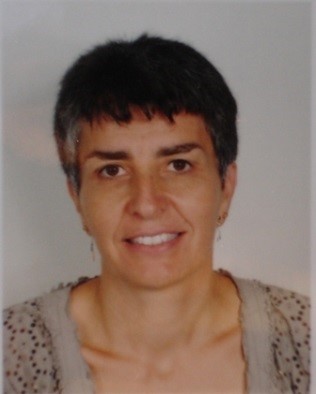 Prof. Christèle Combes
Prof. Christèle Combes
Christèle Combes received her PhD in Materials Science at the Institut National Polytechnique de Toulouse (INPT, France) in 1996 for her study on the nucleation and crystal growth of calcium phosphates on substrates of biological interest (titanium and collagen). In 1997, she held a postdoctoral position at the Ecole Polytechnique de Montréal (Canada) dedicated to the development of polysaccharide based hydrogels for cartilage substitution and repair. Since 1998, she has been a teacher-researcher at the Ecole Nationale Supérieure des Ingénieurs en Arts Chimiques et Technologiques (ENSIACET) in Toulouse. Currently professor at INPT-ENSIACET, she has been at the head of the ‘‘Phosphates, Pharmacotechnics, Biomaterials’’ research group of the CIRIMAT laboratory for 9 years (2007-2015). Her research interests include calcium carbonate and calcium phosphate based biomaterials and biomineralizations in a view to substitute and/or repair bone defects and to go towards better understanding the formation of normal and pathological calcifications.
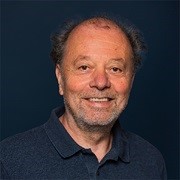 Prof. Mauro Alini
Prof. Mauro Alini
Mauro Alini graduated in Chemistry from the University of Lausanne (Switzerland) in 1983. Since then, he has been involved in connective tissue research, starting from his Ph.D. research work, which focused on the isolation and characterization of proteoglycans extracted from both normal human mammary gland and carcinomas thereof. In September 1988, he joined the Joint Diseases Laboratory at the Shriners Hospital in Montreal to work on quantitative and qualitative changes in extracellular matrix proteins (particularly proteoglycans and collagens) of the growth plate tissue before and at the time of cartilage matrix calcification during endochondral bone formation. In January 1995, he was appointed as an Assistant Professor at the Division of Orthopaedic Surgery of the McGill University and head of the Biochemistry Unit of the Orthopaedic Research Laboratory, working to develop new biological approaches to treating intervertebral disc damage. In July 2000, until 2019, he was the head of the Musculoskeletal Regeneration Program (40 scientists) at the AO Research Institute (Davos, Switzerland), focusing on cartilage, bone and intervertebral disc tissue engineering. Since September 2009 is also Vice-Director of the same Research Institute (more than 100 scientists). He received the Marshall R. Urist Award in 2015 from the Orthopaedic Research Society (USA), and the TERMIS-EU Career Achievement Award in 2023. He gave the Ian MacNab lecture (Canadian Orthopaedic Association) in 2019.
Total Publications >330; Book Chapters, 14; 7 patents; h-Index: 89; total number of citations: >25'000; Source of citation data: Google Scholar: (http://scholar.google.com/citations?user=9_h6-YgAAAAJ&hl=en).
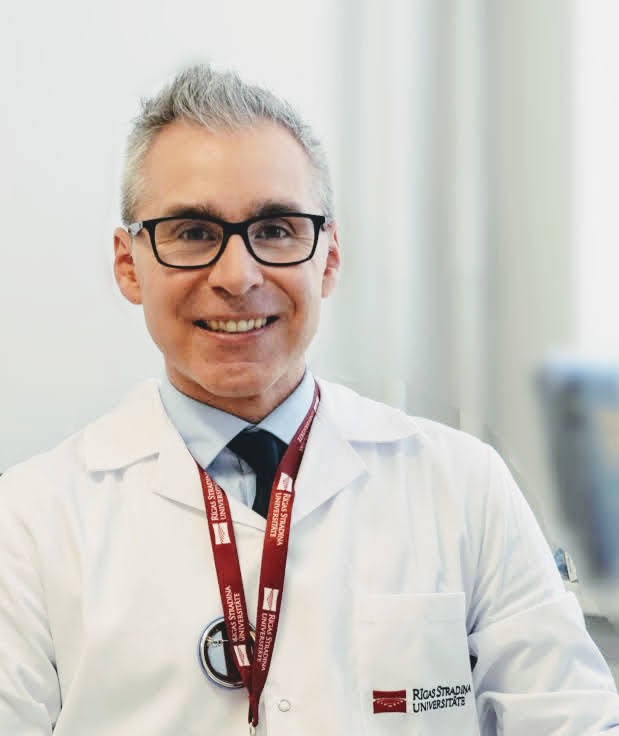 Assoc. Prof. Leading Researcher Dr. Sergio E. Uribe
Assoc. Prof. Leading Researcher Dr. Sergio E. Uribe
Sergio E. Uribe is an Associate Professor of Conservative Dentistry at Riga Stradins University, a Leading Researcher at the Baltic Biomaterials Centre of Excellence, RTU, both in Riga, Latvia, and Assoc Prof from the Faculty of Medicine, Universidad Austral de Chile, Valdivia, Chile. He holds a DDS, an MSc in Maxillofacial Radiology from the Universidad de Valparaíso, Chile, and a PhD from the Universidad Austral de Chile. Prof. Uribe's research uses data science, machine and deep learning techniques, and artificial intelligence to improve the diagnosis and prognosis of oral pathologies, particularly caries, oral cancer, and temporomandibular disorders. Its expertise includes designing and conducting clinical and epidemiological trials to investigate oral conditions and improve diagnosis and treatment methods. Additionally, he researches developing new biomaterials for the prevention and treatment of oral pathologies, particularly for minimally and non-invasive dentistry and using advanced imaging methods for the prognosis and early detection of caries, oral cancer, and temporomandibular joint disorders. Prof Uribe is an associate editor of J Dent Res, BMC Oral Health, and Dent Traumatol and advocates for open science principles in research. He won the International Association for Dental Research (IADR) Research in Prevention Award in 2007. Twitter: @sergiouribe - ORCID 0000-0003-0684-2025.
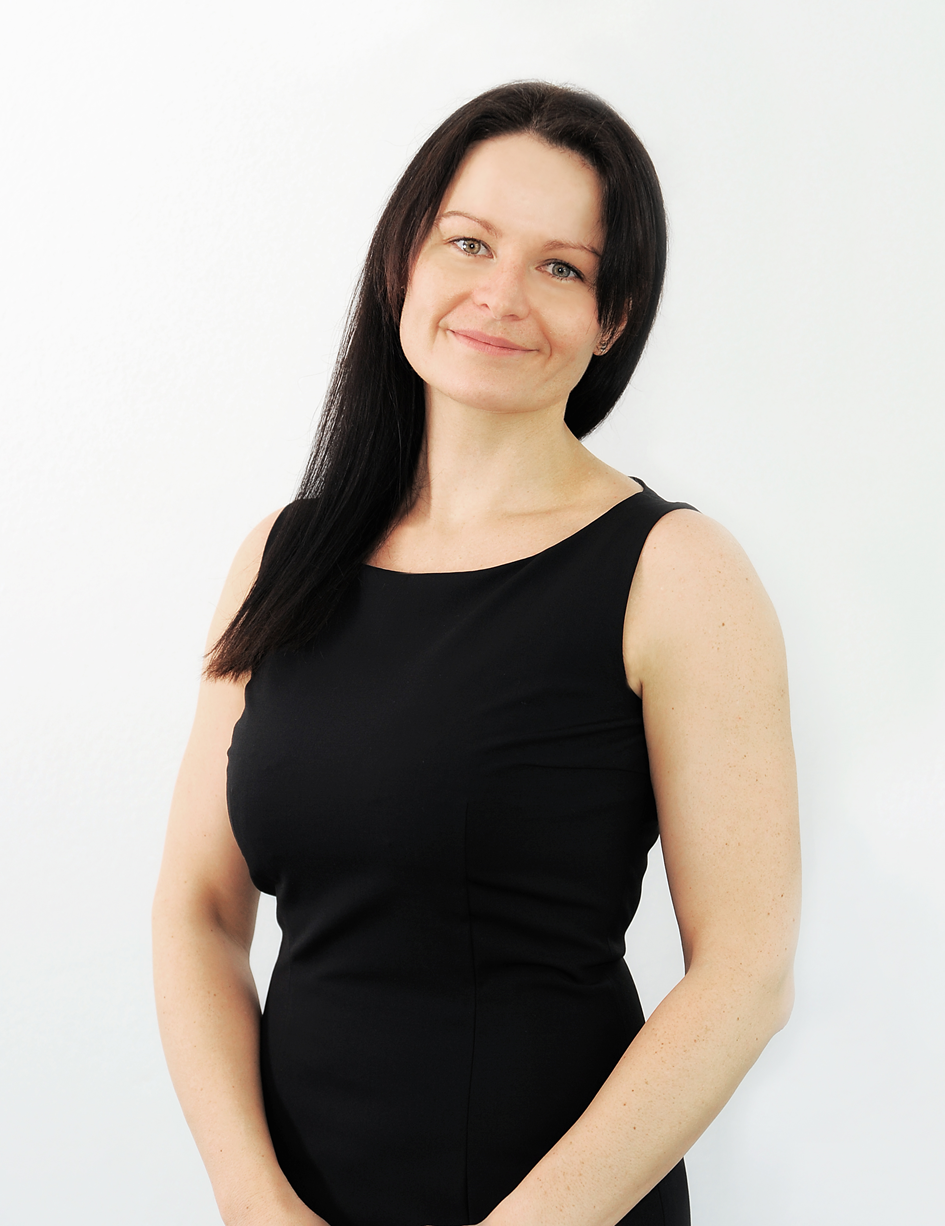 Dr. rer. nat. Anja Heselich
Dr. rer. nat. Anja Heselich
Dr. Anja Heselich is a natural scientist and engineer working in clinical and translational research at the University Clinics of the Goethe University in Frankfurt/Main, Germany. She has studied Chemical Technology with focus on Biotechnology at the University of Applied Sciences in Darmstadt, Germany, where she graduated as an engineer in 2004, and subsequently worked at the universities Department for Biotechnology as an engineer for several years. First in teaching and later in research projects, including research projects for the German Federal Office for Radiation Protection.
In 2009 she moved on to the "Developmental Biology and Neurogenetics" group of Prof. Dr. Paul G. Layer at the Technical University Darmstadt (TUD), where she graduated as PhD in 2012. After her graduation, she worked as a postdoc in two research projects founded by the German Aerospace Center (DLR) on behalf of the European Space Agency (ESA) regarding the evaluation of the radiation risk on the cardiovascular and the visual system during space flights to Mars. Following this, she was able to extend her own research on the influence of near infrared radiation on the cellular radiation response to ionizing radiation, which was founded by the Dr. h. c. Erwin Braun Foundation in Basel.
In 2014 she switched to the Biophysics Department of the GSI Helmholtz Center for Heavy Ion Research, Darmstadt where she was working on the influence of chromatin structures on DNA repair processes after heavy ion radiation induced DNA damage. Both, her research regarding the effects of non-ionizing radiation on ionizing-radiation induced damage, as well as her research on the effects of heavy ion irradiation on the DNA damage repair, were always focusing on understanding these effects in related therapy regimes of radiation-based tumor therapies.
Her current position at the FORM-lab, the research lab of the department for Oral- and Maxillofacial Surgery at the University Clinics of the Goethe University Frankfurt/Main, where she started in 2018, brought her even closer to research-based improvement of patients’ therapies. At FORM-lab she is coordinating and evaluating clinical and translational studies regarding biomaterial application for bone and soft tissue regeneration as well as oncological studies in the head and neck area. Since her PhD at the TUD she is involved in teaching as well and has been given lectures, seminars, and practical courses in the areas of Developmental Biology and Tissue Engineering, in DNA damage repair and Biophysics, in Human Biology for Engineers, and currently in Medical Technology.
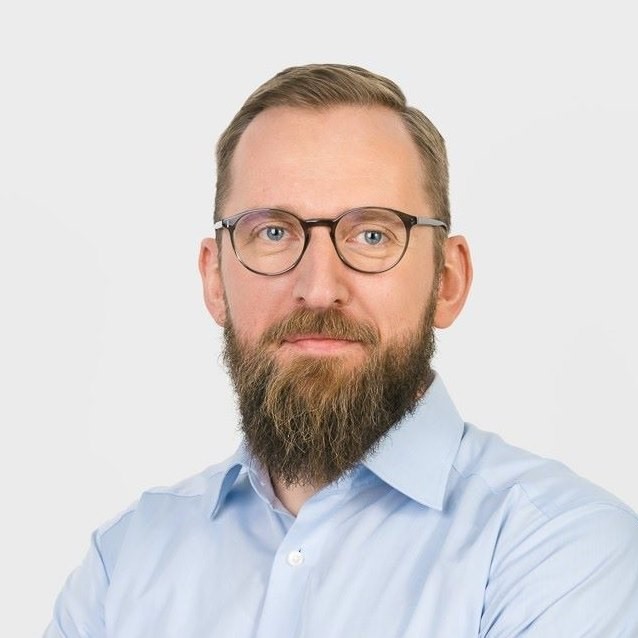 Assoc. Prof., PhD Kristaps Klavins
Assoc. Prof., PhD Kristaps Klavins
Dr. Kristaps Klavins is an expert in analytical chemistry with a focus on metabolomics and lipidomics. He has over 12 years of experience in LC-MS-based metabolomics/lipidomics and extensive knowledge of how these techniques can be applied in biomedical research using various in vitro and in vivo models. He obtained his Ph.D. in 2014 from the University of Natural Resources and Life Sciences – BOKU, Vienna.
After his Ph.D., Dr. Klavins joined "Biocrates Life Sciences AG" as a Senior Scientist at the Department of Research and Development, where he focused on developing novel LC-MS-based kits for the analysis of metabolites and lipids. In 2017, he became the Deputy Head of Proteomics and Metabolomics Facility at CeMM - Research Center for Molecular Medicine of the Austrian Academy of Sciences. In this role, he established and led new collaborations with academic and industry partners and was responsible for setting up the metabolomics facility.
In 2020, Dr. Klavins received a Marie Skłodowska-Curie Individual Fellowship and joined Rudolfs Cimdins Riga Biomaterials Innovations and Development Centre at Riga Technical University (RBIDC RTU). The following year, he was appointed as Associate Professor at the Faculty of Materials Science and Applied Chemistry, Riga Technical University, Latvia. Currently, he teaches "Analytical Chemistry" and "Chromatography, and mass spectrometry" courses for national and international bachelor students.
Dr. Klavins leads the "Material In vitro" scientific focus group within the scope of the Baltic Biomaterials Centre of Excellence (BBCE). His research interest is to study the fundamental molecular mechanisms of cell-biomaterial and cell-cell interactions upon biomaterial treatment.
Acknowledgements: Those projects has received fundings from the EU’s Horizon 2020 research and innovation program under grant agreements No. 860462 and No. 952347.
Winter School_2023_FIN_Agenda.pdf
